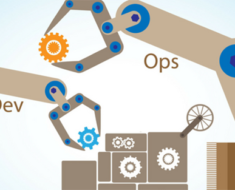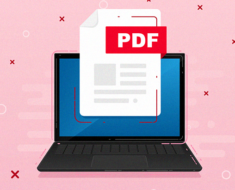
Ten years ago, social media for business was not exactly a huge deal. This stemmed from the fact that social media platforms did not hold as much power and were not crucial for businesses. However, today things have changed drastically.
The statistic below clearly shows how prominent social media is today across all platforms and how its popularity continues to increase. With over 7 billion people in the world, at least one in three individuals are using one of these sites.
The Importance of Social Media Marketing
Understanding the importance of social media for businesses, especially smaller ventures, is crucial for developing a strategic approach. Social media marketing, alongside email marketing, offers cost-effective advertising opportunities. Creating brand awareness and fostering engagement through authentic interactions are key objectives.
This approach cultivates brand authority and loyalty among customers, leading to word-of-mouth promotion. A strong social media presence also contributes to search engine rankings, making it essential for SEO strategies. Optimizing social media content and sharing blog posts enhances SEO efforts effectively.
The Big Four Social Media Platforms
While there are numerous social media platforms, this article focuses on the Big Four: Facebook, Instagram, LinkedIn, and Twitter. Each platform serves a specific purpose and audience, making it essential for businesses to understand where their target demographic spends its time.
- Facebook: renowned for its extensive user base, places a premium on visual content and active participation. Marketers need to fine-tune their posts for optimal timing, foster positive interactions, and maintain consistent posting schedules to excel.
- Instagram: with its focus on visually appealing content, it presents avenues for fostering brand engagement and cultivating loyalty through captivating imagery and videos. Strategies encompass influencer collaborations, giveaways, and leveraging features such as Stories and IGTV. Learn about how to schedule Instagram posts for better reach.
- LinkedIn: tailored for professional networking, serves as an ideal platform for B2B marketing. Marketers should craft informative company pages, adapt content to a professional demeanor, and prioritize engagement and relevance.
- Twitter: celebrated for its succinct communication style, thrives on real-time interaction and viral trends. Effective strategies entail frequent tweeting, active engagement with other businesses, and sharing original content optimized with relevant keywords.
The Role of Social Media Automation
Many business owners realize too late that social media marketing demands significant time investment. Managing multiple platforms can be time-consuming, from engaging with comments to crafting ads. Despite the initial allure of social media as a leisure activity, its management is far from relaxing; it’s hard work. Thankfully, social media automation offers a solution. Using tools to schedule posts and handle tasks can save time and enhance your strategy’s effectiveness. Automation streamlines processes, allowing you to focus on more meaningful activities and maximize productivity.
How Does Social Media Automation Work?
The process of automating tasks on various social media platforms can differ, but generally, it involves integrating suitable automation tools tailored to your specific needs. Initially, it’s crucial to grasp what aspects can be delegated to social automation. Once identified, you can proceed to select the appropriate tools to execute these tasks.
Typically, automation platforms necessitate you to create a profile, enabling you to directly link your social media accounts within the platform. This allows the software to post on your behalf at predefined times.
Additionally, certain automation tasks can be managed within your social media accounts themselves. For instance, ad automation becomes feasible when scheduling social media campaigns. The platform will publish the ad according to your specified time, eliminating the necessity for you to be actively present at your computer. Thus, if you desire an ad to go live at 6 a.m. on a Saturday, you can achieve this without being tethered to your desk at that precise moment.
Benefits of Social Media Automation
You’ll quickly realize its indispensable role in your operations once you incorporate various methods to automate your social media presence. Modern businesses rely heavily on automation due to its critical nature.
With almost everyone engaging with social media on a weekly, if not daily or even hourly basis, tapping into these platforms presents an immense opportunity for your business to expand its reach. When executed intelligently, leveraging automation can yield significant benefits.
1. Enhances Efficiency and Reduces Costs
By automating social media tasks, you can cut down on costs and free up time for you and your marketing team to focus on more strategic endeavors. Mundane tasks like scheduling and data collection can be delegated to software systems, allowing human resources to be allocated more effectively.
2. Ensures Consistent Posting
Consistency is key to maximizing impact on social media platforms. Automation enables you to schedule posts at regular intervals, preventing the risk of inundating your audience’s feed with too many posts too quickly.
3. Enhances Audience Engagement
Automated social media tools contribute to a more robust digital presence, fostering meaningful interactions with your audience. By providing consistent engagement opportunities, automation helps cultivate a loyal following.
4. Enables Scalability
Automation tools are instrumental in scaling up your social media presence as your business grows. They allow you to maintain a consistent level of activity across platforms without requiring a large team of experts.
5. Offers Immediate Responsiveness
Automation enables swift responses to customer inquiries and feedback, meeting the demand for seamless customer service at all times. Utilizing automation ensures prompt interactions irrespective of the timing or location of customer outreach.
6. Supports Strategic Planning
Automation assists in unbiased data analysis, furnishing vital insights for strategic decision-making. From gathering accurate data to scrutinizing industry patterns, automation tools equipped with AI capabilities empower businesses to strategize effectively for future achievements.
7. Improves Social Media Management
Unified social media tools help streamline social media management, offering a comprehensive view of your brand’s presence. This holistic perspective allows you to identify strengths and areas for improvement more efficiently.
Final Thoughts
Social media’s evolution in business over the past decade has been remarkable. Initially underestimated, it’s now crucial for brand growth and engagement, marking a transformative journey.
This analysis underscores social media’s significant impact on modern business strategies, focusing on platforms like Facebook, Instagram, LinkedIn, and Twitter. Each offers unique opportunities for tailored approaches to connect with target audiences effectively.
Furthermore, social media marketing’s importance lies in enhancing brand awareness, engagement, and search engine rankings, especially when integrated with email marketing for cost-effective advertising and brand loyalty.
Managing multiple platforms can be complex, but social media automation streamlines operations, ensuring consistent posting, audience engagement, scalability, and strategic planning.








































